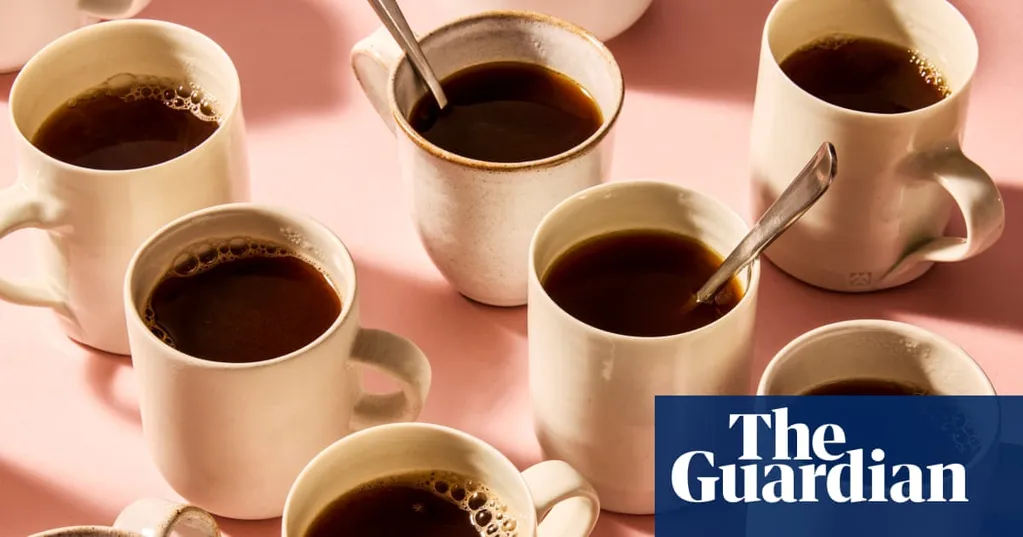Most supermarket coffee disappoints: often stale and over-roasted, and with unpleasant notes of rubber and burnt ash. That said, as someone who prefers a lighter roast coffee (that is, bright, fruity and acidic), I was pleasantly surprised by some of the brands I found among all the dark-roasted offerings that dominate our supermarket shelves.
I focused on fresh coffee that's sold ready-ground for general use in cafetières, filters or moka pots (depending on the grind size, some leaned better towards one method than another, which I've noted where necessary). Ideally, however, coffee should be freshly ground for purpose, with a fine, sandy grind for moka pots, and a coarse, gritty one for filters and cafetières. I judged each coffee on flavour, provenance, sustainability and value, while bearing in mind that its quality depends on every stage of the production process, from growing and selection to fermentation, drying, roasting and storage. Coffee also carries a huge social and environmental weight, which makes certifications such as Fairtrade and organic, as well as independent social and ecological initiatives, so important.
The results were mixed. Some coffees were predictably dreadful, but others were surprisingly good value. One key finding stood out, however: the most expensive supermarket products rarely justify their price.
Coffee is something of an art, so I brought in a professional to help guide my tasting. Will Whiting, founder of Calm Coffee Roastery in Peckham, south London, welcomed me to his space where two tables were carefully laid out for a cupping session (cupping is the global standard for assessing coffee quality). We measured 12g of each sample into individual bowls, noted the dry aromas, then filled the bowls to the brim with hot water. After four minutes, we broke the crust of grounds with spoons, and inhaled the aroma as the gases released. We then skimmed off any remaining grounds and let the brews rest and sit for 10 minutes before tasting from spoons, which spread the coffee instantly across the tongue, revealing its flavour in a burst. We then took notes on the acidity, body and nuanced flavour.
What did we discover? The bottom-shelf coffees are as bad as we'd expected: harsh, bitter and good for nothing more than a morning caffeine kick. But there were surprises, too. Perhaps the biggest lesson was that the most expensive supermarket coffees - often priced on a par with coffee from top micro-roasteries - just don't deliver. If you want truly exceptional coffee, skip the supermarket's so-called premium bags and order online from independent roasters who provide small-batch beans of good provenance, named varietals traceable to individual farms and, crucially, clear roasting dates, which helps ensure a coffee's freshness.
★★★★☆
This farmer-owned lighter roast surprises the palate with malty, caramel notes, smooth body and a bright hazelnut finish. Each pack funds two school meals - a true example of flavour and strong social purpose coming together to add real value.
★★★☆☆
Excellent value and a step up in quality with clear provenance. Smells of fresh toast and chocolate, and has a brightness that comes through in the cup with medium-low acidity and subtle, nutty notes. Smooth, enjoyable and Rainforest Alliance-certified.
★★★★☆
The most interesting aroma of the test; bright and rounded with lower acidity. Berry, dark chocolate and umami on the nose; cereal and stone fruit in the cup. A washed 100% arabica from Chiapas, Mexico; also Fairtrade, organic and B Corp-certified. Ethically sourced, complex and very enjoyable. This says it's ground for cafetières, but even so, it worked beautifully for an espresso from my moka pot too.
★★★★☆
A lighter roast with cacao and fruity notes on the nose. Caramel and medium acidity in the cup. Conservation-led, reforestation-focused and carbon credit-backed. Purpose-driven, flavourful and with a Great Taste Award star.
★★★☆☆
A dark, leathery roast with hay on the nose. Bold, intense and medium in acidity, with Colombian arabica beans roasted in Brixton. The company is independent and B Corp certified.
★★☆☆☆
A heritage Italian favourite blending robusta and arabica from South America and Africa. Vegetal tomato, leather and dark chocolate aromas; sweet caramel and toast in the cup. An intense fine grind best suited to moka pots. No third-party accreditation though Lavazza has its own sustainability policy: Blend for Better.
★★☆☆☆
A Swedish brand that started in 1906, offering a flat, smoky aroma and a surprisingly bright, nutty cup with some bitterness. Organic and backed by a strong green policy; this is great value as an entry-level organic coffee.
★★★☆☆
Savoury dark-roast aroma with a hint of toast. In the cup it’s rounded full-bodied and bright. Single-origin Colombian from the Andes; Soil Association organic; Fairtrade; B Corp certified.
★☆☆☆☆
Smells burnt on the nose; hint of dark chocolate. In the cup it’s full-bodied with low acidity but bitterness dominates leaving little room for nuance. Made with 100% arabica beans; Fairtrade-certified so it gets a point for sustainability but this one is hard to recommend on taste alone.
☆☆☆☆☆
Smells of burnt tyres, rubber and ash; which is not a good start. In the cup; it’s punchy and rounded; but dominated by the taste of ashtrays. Fairtrade-certified; but this blend of robusta and arabica is essentially rocket fuel.
